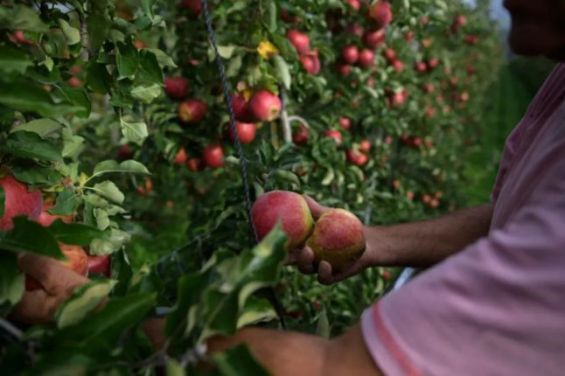Known for its apple orchards, the Lot-et-Garonne region in southwest France is a regular destination for seasonal workers. Among them, many Moroccan nationals pay significant sums to secure work contracts in the fields. But behind the promise of legal employment, some find themselves trapped in exploitation. In a recent investigation, StreetPress uncovered fraudulent practices and modern-day slavery on a farm run by a well-known landowner with far-right affiliations. Located just outside Villeneuve-sur-Lot, the farm pays its workers well below the legal minimum wage and houses around thirty of them in cramped, unsanitary conditions.
StreetPress interviewed one Moroccan worker who bravely spoke out. Originally from northern Morocco, he endured these inhumane conditions for twenty years, all while gathering evidence of the abuse. With documents, photos, videos, recordings, and contracts to support his claims, the outlet also confronted those accused of these violations.
The farmer is alleged to have charged some Moroccan seasonal workers up to €14,000 for contracts—money paid through a Moroccan intermediary, himself a former seasonal worker.
Testimonies describe exhausting workdays of 11 to 12 hours, falsified payslips, and wages withheld until the end of the season—if they were paid at all.
An Influential Unionist in the Rural Coordination Movement
The employer in question is Alain Aunac, a trade unionist and elected representative of Rural Coordination (CR) within the Agricultural Social Mutual Fund of Dordogne and Lot-et-Garonne. The CR is known for its militant protests against free trade agreements, EU regulations, and rising production costs—often echoing far-right rhetoric.
During recent agricultural chamber elections, CR saw major gains, winning in 14 departments. Lot-et-Garonne, a CR stronghold, is where Aunac reportedly operates with little oversight or accountability.
His influence has reportedly discouraged other victims from speaking out, though some agreed to share their experiences anonymously.
«I’ve always worked with Moroccans, but not necessarily on the same team. If they’re asked to work Saturdays, they do it. Sundays, too», said a former seasonal worker.
According to StreetPress, the scam often begins in Morocco, where workers are sold falsified documents granting them legal work permits from the French Office for Immigration and Integration (OFII).
Crackdown on Illegal Recruitment Networks
Some Moroccan workers have now filed official complaints for human trafficking. Investigators are now looking into whether the farmer knew about the high fees charged by the intermediary—and if he did, why he chose not to intervene.
This isn’t an isolated case. In December, a farmer in the same region was sentenced by the Agen court to three years in prison and fined €50,000 for human trafficking. In another case, a couple was detained after 22 workers filed similar complaints.
In February, three Moroccan vineyard workers in Gironde also filed lawsuits, claiming they were scammed out of €14,000 each and never received their wages. They say they were passed from vineyard to vineyard by the same recruiter, who allegedly kept all the payments for himself.





 chargement...
chargement...













